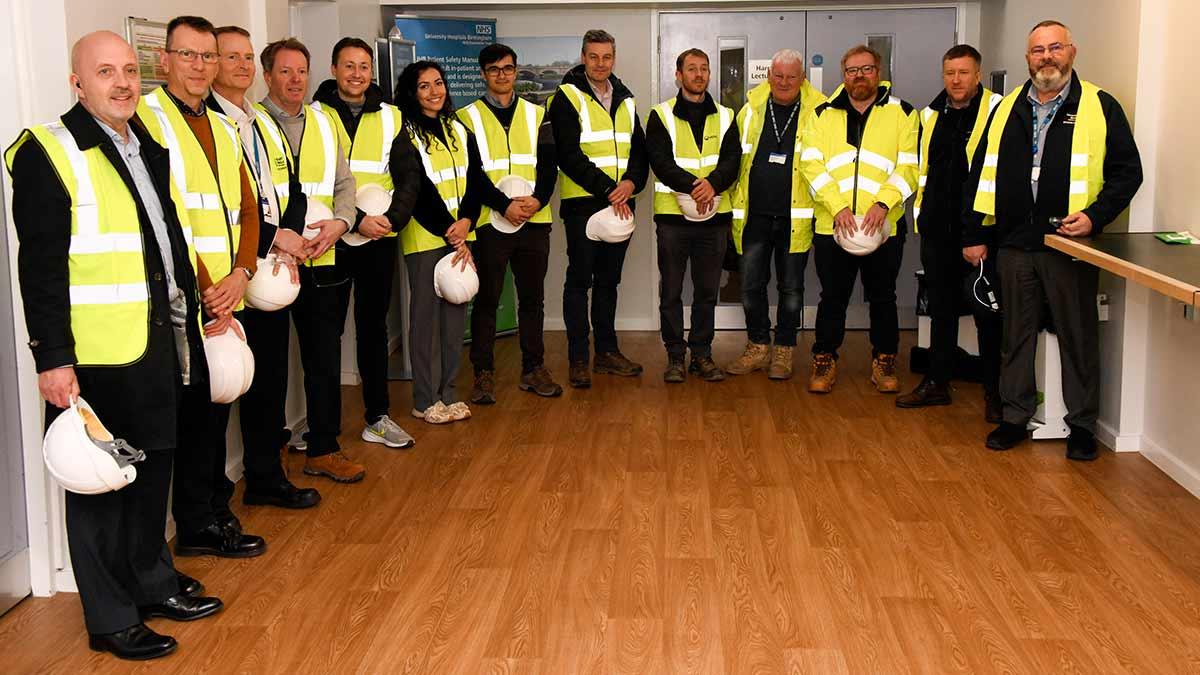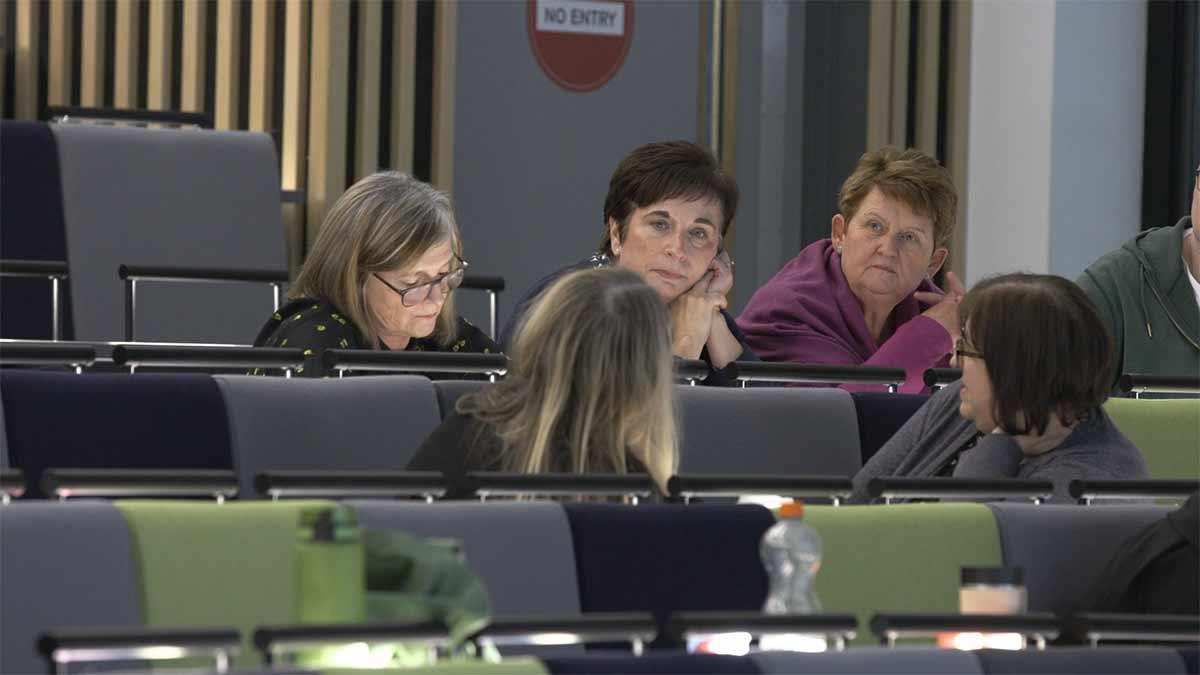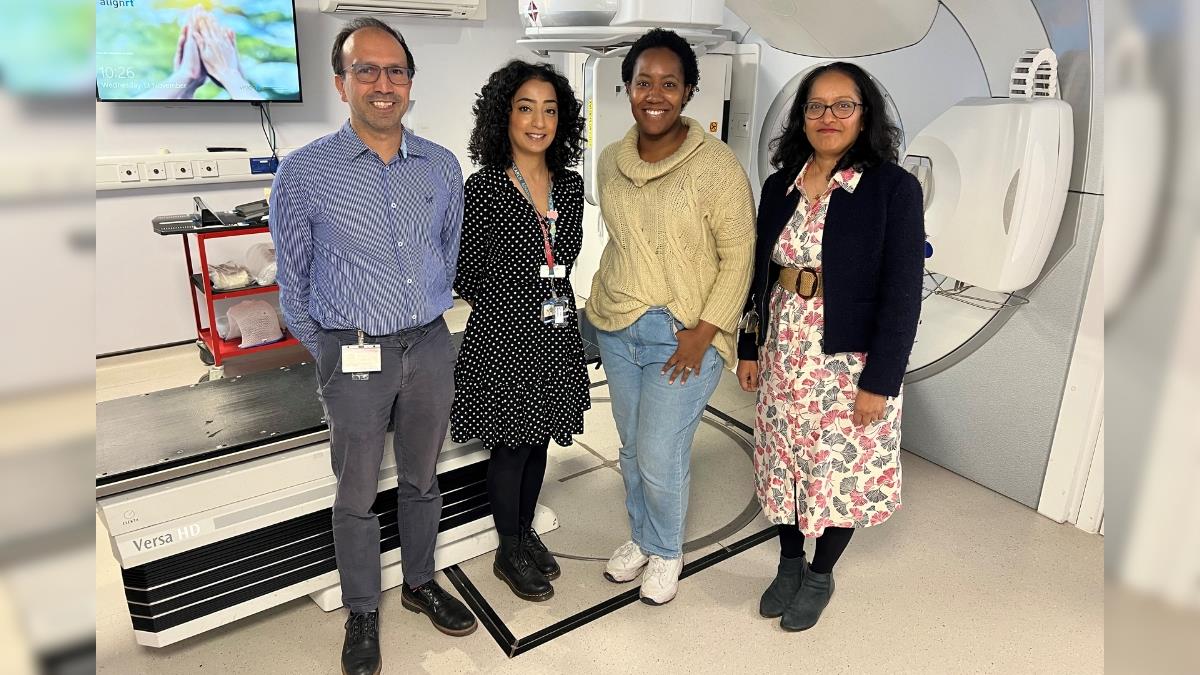UK’s first inflammatory breast cancer clinic launched
Published on 25/10/2022

A ‘first of its kind’ breast cancer clinic has launched at University Hospitals Birmingham NHS Foundation Trust (UHB), dedicated to seeing patients with a rare type of breast cancer.
Inflammatory breast cancer (IBC) is a fast-growing type of breast cancer and accounts for 1-4% of all breast cancers. It gets its name because the skin of the breast has a red, inflamed appearance.
The UHB clinic is the only one of its type in the UK with a dedicated team and pathway for patients with this cancer.
As well as offering the expertise and skills to diagnose and treat this rare disease, the clinic is also part of a ground-breaking research project. At the point of diagnosis and with patient consent, fresh tissue samples are taken and added to a tissue bank at the University of Birmingham. The samples are then used as part of translational research looking at how cells respond to therapeutic options. The way the tissue sample is collected and processed before the patient has had treatment, such as chemotherapy, means the tumour tissue is unaffected by treatments that alter the tissue characteristics which is beneficial to the research.
Mr Naren Basu, consultant breast and oncoplastic surgeon, said: “Inflammatory breast cancer is a rare form of cancer and is therefore not as well understood as other types of the disease. It is sometimes not diagnosed clearly and quickly and there are variable outcomes. For patients, being able to see specialists with experience in IBC and take part in exciting new research is a real benefit. UHB is well-placed to offer a comprehensive service as we have the full range of treatment options available and our relationship with the University means we can pool our expertise to find out more about this disease and its treatment.”
The IBC team see patients who have come via their GP and are triaged to them after a multi-disciplinary meeting, but they also offer an advisory service offering a second opinion to healthcare colleagues across the UK. Patients as far away as Hertfordshire have come to the clinic for advice.
They are then managed with an agreed treatment plan delivered by their own hospital, where local care teams can offer treatment close to the patient’s home, supported by the team at UHB.
Jane Steven, Macmillan lead clinical nurse specialist in breast care, added: “We know that patients prefer to have their treatment close to home and that travelling long distances can be worrying. We telephone the patients coming to us for a second opinion for a virtual ‘meet and greet’ before their appointment to explain who we are and what to expect. This offers reassurance and means our patients feel they know us a little bit before they arrive.”
Mr Basu and Jane are part of the IBC team which includes Professor Daniel Rea, Professor of Medical Oncology and Honorary Consultant in Medical Oncology at the University of Birmingham and Professor Abeer Shaaban, breast pathologist at UHB. They are joined by a team of IBC nurses (including Jackie Donnelly and Gina Sowsbery, who are regularly available), radiology and pathology team members and a scientific research team at the University of Birmingham, headed by Dr Fedor Berditchevski.
Dr. Berditchevski commented: “Having the IBC clinic at the University campus will facilitate our access to the valuable clinical samples and data. This is absolutely essential for our work on detailed genetic profiling of tumour tissues and developing novel therapeutic strategies using pre-clinical IBC cell models.”
Together, the team make up a unique group of experts with a wealth of experience, dedicated to diagnosing, treating and researching this rare cancer. The team benefit from a close working relationship with the Inflammatory Breast Cancer Network UK.
“The Inflammatory Breast Cancer Network UK are delighted to be working alongside such a specialist team at the UK’s first, dedicated IBC clinic” said Autumn Morris, chairperson for IBC Network UK. “The new clinic is vitally important to our charity patient support service to be able to recommend to our members, as this is the gold standard of IBC care and is a much-needed national service for second opinions” added Caroline Sands, IBC Network UK support service manager.
The clinic is in its infancy with the expectation that patient numbers will increase over the coming months.
Mr Basu concludes: “We might only come across a few IBC patients in our careers but by establishing a ‘centre of interest’ at UHB and bringing together all our skills and experience into one place we hope to offer IBC patients the best care possible.
“Our research is a really exciting development; our aim is to make a cancer which is currently difficult to treat, less difficult. Our patients will benefit as we improve our understanding of the disease and in turn, offer treatments which could give them better outcomes.”


